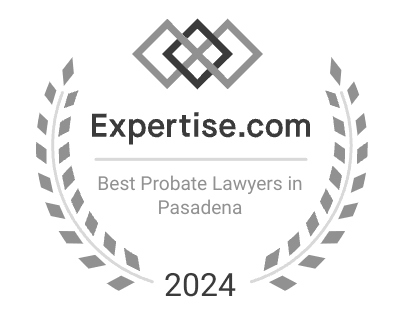Advanced Estate Planning
 You’ve worked hard to provide for yourself and your family and make your future more secure. Without advanced estate planning strategies, much of the significant assets you have accumulated may be lost to federal estate taxes.
You’ve worked hard to provide for yourself and your family and make your future more secure. Without advanced estate planning strategies, much of the significant assets you have accumulated may be lost to federal estate taxes.
Slater Cosme, PC, regularly assists affluent clients with sophisticated planning strategies, such as Dynasty Trusts, Family Limited Liability Companies, Qualified Personal Residence Trusts, Irrevocable Life Insurance Trusts, and Charitable Remainder Trusts. A carefully designed estate plan may include one or more of these estate planning vehicles.
Dynasty Trusts
Traditionally, family wealth is taxed at the end of every generation. This means that assets transferred from parents to their children will be subject to estate taxes as part of the children’s estates at the death of each child. A way to protect your children’s inheritance from being subject to this re-taxation is by creating a Dynasty Trust to hold the assets left to each child. In fact, by creating a Dynasty Trust, also known as Legacy Trusts or Generation Skipping Trusts, a parent can allow his or her assets to pass through to subsequent generations without incurring an estate tax at the death of the trust’s beneficiary on the exempt portion of the trust’s assets.
The savings to future heirs and beneficiaries can be significant.
In addition to estate tax savings, Dynasty Trusts also provide the following benefits and protections:
1. Protection from Creditors: The assets in a Dynasty Trust are protected from creditors or judgments arising from liabilities like car accidents and other lawsuits. If your children are sued, the inheritance you leave to them will receive greater protection from creditors if those assets are held in a Dynasty Trust for their benefit rather than if they owned the assets outright.
2. Protection from Divorce: Assets held in Dynasty Trusts are protected from division in divorce proceedings and cannot be attached by your children’s spouses.
3. Protection from Incapacity: If your child or children become incapacitated the assets held in the Dynasty Trust will be managed by the successor trustee you’ve appointed without the necessity of a costly court conservatorship.
4. Protection from Probate: When the beneficiary of a Dynasty Trust dies, the assets held in the trust can pass to your next generation of heirs and beneficiaries without the necessity of an expensive and time consuming probate proceeding through the Superior Court system.
5. Dynasty Trusts are not just for people with grandchildren: There is a common misconception that a Dynasty Trust can only be created by people who have grandchildren. However, this is not true. Anyone who is interested in protecting the assets they leave to beneficiaries in future generations from estate taxes, creditors, divorce, conservatorships, and probates, may do so by creating a Dynasty Trust to protect the beneficiaries during the beneficiaries’ lifetimes. The creator of the trust can then appoint who they want to inherit the trust assets after the beneficiaries pass away. Grandchildren or great-grandchildren are not required and do not have to be the trust beneficiaries. A Dynasty Trust is a valuable estate planning strategy that can be created by anyone who wants his or her beneficiaries to enjoy significant tax savings and to preserve what they leave behind for the benefit of generations to come.
The attorneys at Slater Cosme, PC, specialize in creating and designing Dynasty Trusts to meet your unique estate planning and asset protection needs.
Family Limited Liability Companies
Family Limited Liability Company (FLLC or Family Limited Partnership) may be used to transfer assets including investment securities, business interests, and real estate investments among family members at a reduced value for federal gift tax purposes while effectively retaining control over such assets. An added benefit is that the Family Limited Liability Company may serve as an asset protection vehicle.
One of the most attractive features of the Family Limited Liability Company is the concept of valuation discounts. Although an asset may otherwise carry full fair market value, the transfer of a member unit typically results in a minority interest. In addition, non-managing members, have no control over the Family Limited Liability Company and the underlying property. Therefore, the transferred interest is typically discounted by as much as 30 to 40 percent or more when valuing the transfer for federal gift or estate tax purposes.
The formation of a Family Limited Liability Company or Family Limited Partnership requires careful planning discussed with one of Slater Cosme, PC’s experienced estate planning attorneys in order to achieve the benefits that are available.
Irrevocable Life Insurance Trusts
There is a common misconception that life insurance proceeds are not subject to federal estate taxes. While the proceeds are received by your beneficiaries free of any income taxes, they are included as part of your taxable estate and therefore your beneficiaries may lose some value of the proceeds to estate taxes.
An Irrevocable Life Insurance Trust (ILIT) is created specifically for the purpose of owning your life insurance policy. A properly established and administered trust holds the policy outside of your estate and keeps the proceeds from being taxable to your estate. The proceeds from the insurance policy can then be used to provide your estate with the liquidity to pay estate taxes, pay off debts, pay final expenses and provide income to a surviving spouse, partner, or children. The ILIT will be the policy owner and beneficiary. Once your insurance trust is established, you use your annual gift tax exclusion to make cash gifts to your trust. Your beneficiaries forgo the present cash gift, but will receive much greater future proceeds, and the trustee uses the cash gift to pay the premium on the life insurance policy.
There are many options available when setting up an ILIT. For example, ILITs can be structured to provide income to a surviving spouse or partner with the remainder going to your children or other beneficiaries. You can also provide for distribution of a limited amount of the insurance proceeds over a period of time to a child who has difficulty managing financial matters. This estate planning strategy offers asset protection benefits as well.
The attorneys at Slater Cosme, PC, work in a collaborative team approach with your insurance professionals in establishing and designing ILITs to meet your estate planning goals and objectives.
Charitable Remainder Trusts
Slater Cosme, PC, can help you use charitable remainder trusts to maximize your income, reduce tax exposure, and benefit your preferred charities.
A charitable remainder trust allows you to convert highly appreciated assets, such as stock, real estate, and some stock in closely-held corporations, into lifetime income. Under a Charitable Remainder Trust, one or more noncharitable beneficiaries receive a stated amount each year for a fixed term or for the life or lives of the beneficiary or beneficiaries. At the end of the term of the trust, the remaining amount held in trust is distributed to your preferred charity.
The Charitable Remainder Trust is used primarily to provide income security to the noncharitable beneficiary or beneficiaries, while at the same time obtaining a charitable tax deduction. The Charitable Remainder Trust reduces your income taxes now and estate taxes later. You pay no capital gains taxes when an asset of the Charitable Remainder Trust is sold. The savings of capital gains taxes means greater income to your family and loved ones with the added benefit of a benefit conferred upon charities that have special meaning to you.
The two types of Charitable Remainder Trusts are the Charitable Remainder Annuity Trust and the Charitable Remainder Unitrust. In a Charitable Remainder Annuity Trust, the amount that is paid annually to the noncharitable beneficiaries must be a sum certain and cannot be less than 5 percent or more than 50 percent of the initial fair market value of the trust.
In a Charitable Remainder Unitrust, the amount that is paid annually to the noncharitable beneficiaries must be a fixed percentage of at least 5 percent but not more than 50 percent of the annually determined fair market value of the trust assets. A variation of the Charitable Remainder Unitrust, permits the trustee to pay only trust income to the noncharitable beneficiaries if actual income is less than a stated percentage; this deficiency is then made up in later years.
Charitable Trusts can also be combined with a Wealth Replacement Trust using life insurance so that your family and loved ones receive an amount equivalent to what you are giving to charity, so their ultimate share is not significantly reduced.
Slater Cosme, PC is dedicated to helping you make educated, informed decisions about your assets and will work with you and your team of financial advisors and CPAs to implement a charitable trust design to provide income and save both income and estate taxes.
Qualified Personal Residence Trusts
Even in challenging markets, our homes are often our most valuable assets and therefore one of the largest components of our taxable estate. A Qualified Personal Residence Trust, or a QPRT, allows you to give away your house or vacation home at a great discount, freeze its value for estate tax purposes, and still continue to live in it. You transfer the title to your house to the QPRT, generally for the benefit of your family members, reserving the right to live in the house for a specified number of years. If you live to the end of the specified period, the house, together with any appreciation in its value after the transfer, passes to your children or other beneficiaries free of any additional estate or gift taxes. After the end of the specified period, you may continue to live in the home but you must pay rent to this Trust which is received by your family or beneficiaries. This may be an added benefit as it serves to further reduce the value of your taxable estate, though the rental income does have income tax consequences for your family or beneficiaries. If you die before the end of the period, the full value of the house will be included in your estate for estate tax purposes, though in most cases you are no worse off than you would have been had you not established a QPRT. An added benefit of the QPRT is that it may also serve as an asset protection vehicle since you no longer own the property once the trust is established and your residence is transferred to the QPRT.






